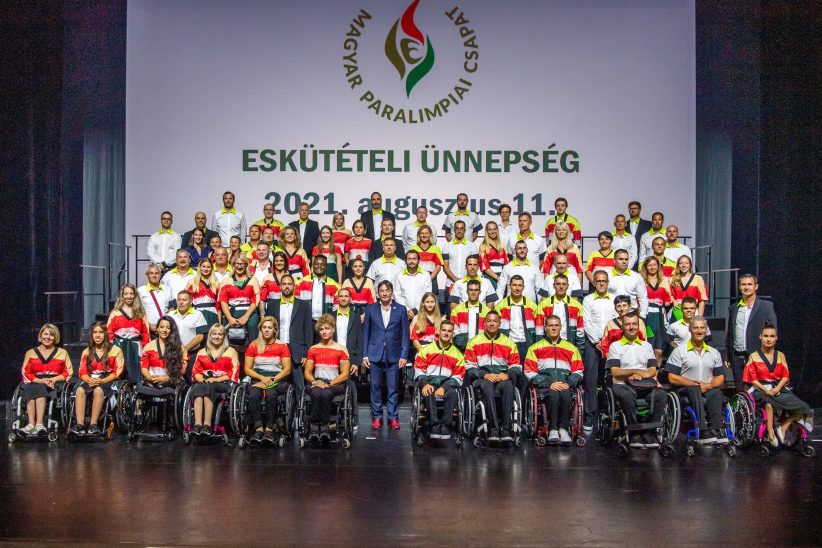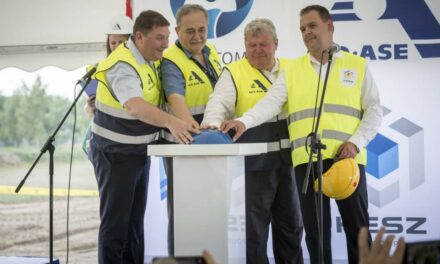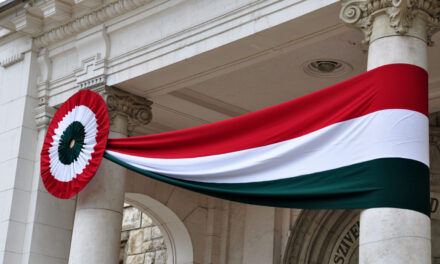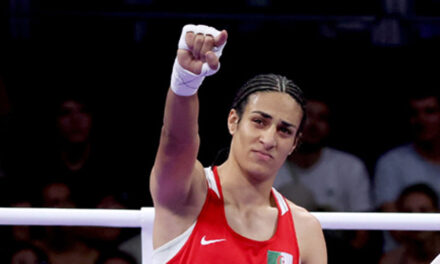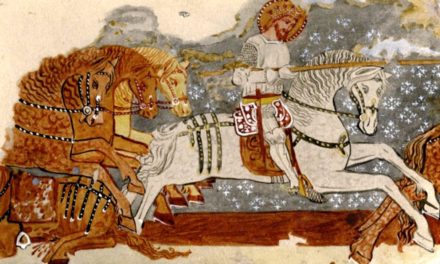László Szabó, president of the Hungarian Paralympic Committee (MPB), called Tokyo the golden team of Hungarian Paralympic sports, who believes that every competitor gave their best in every event in the Japanese capital.
"It is not a dangerous thing for a sports leader to say numbers before a world competition, and moreover, before such a multi-world competition. There is a risk because you have to face these numbers afterwards, but I took that risk because I trusted the athletes and knew what they had. I said three numbers, that there should be 15 extra medals, so at least 15 medals, and we got sixteen medals. I said there should be three to five gold medals, it turned out to be seven, and I said there should be medals in at least six sports, and we did exactly six.
So I face these numbers with courage and pride," he began his summary after the 400-meter final of Luca Ekler, the last event from a Hungarian point of view.
He emphasized that everyone can go home with a clear conscience.
"I told the competitors several times before the Paralympics, also here in Tokyo, that when we go home at the end and look each other in the eye, when we say goodbye at the airport, we should all see in each other's eyes that we did everything. And now it's a hundred out of a hundred. Here, every competitor gave everything they had in every event. I thank them the most for this. That they did it as honestly and devotedly as we asked them to and as they expected from themselves. That is the most beautiful thing about this story.”
Together with the guide of the 37 and the visually impaired cyclist, the 38-member Hungarian team finished the Tokyo Paralympics with seven gold, five silver and four bronze medals. However, according to the president of the MPB, there are still unused opportunities.
"If you look at all the competitions of the Paralympics, I think that more balls bounced off the post than into them. So, in fact, there could have been more in terms of medals, but let's not be insatiable," he said, listing three reasons for the successful performance.
"We were able to carry out a conscious - unfortunately, five-year, not four-year - preparation until the end. I note quietly and in brackets, I am not sure that we would have achieved such results in 2020 as in 2021. This one year may have been good for us, but I say this very quietly, because someone may still misunderstand that I am happy about the epidemic and the postponement. There's no question about that, I'm just trying to piece it together in my head. The other is that the financial basis for this was secured, it is important that we were able to rely on a safe budget and give the athletes what was expected and what was needed. And the third, which is at least as important, is that we managed to forge a team. These boys and girls love each other regardless of their sport, age or form of disability.
They watch each other's competition, they know about each other, they are friends, they are in a relationship, they support each other in the stands as much as possible. This is a team in the true sense of the word," said László Szabó, and then he said: "I claim that Hungarian parasport has never been as high as in September 2021, and this team that was here in Tokyo with many behind them, with trainers , with coaches, family, friends, clubs, associations, and the athletes who didn't make it, but helped them to make it, this is the golden team of Hungarian parasport. A team like never before.”
Regarding the background of a successful performance, he emphasized: if someone wants to be the best, it must come from within, and the competitor must feel the talent, motivation, ambition, and have a professional sports background behind him - there is a coach, a club, an association, a training ground , training camp - and you should feel love behind you, a supportive atmosphere.
“Now it has come together. I may be saying big words, but when should one say big words, if not now: in 2021, for the first time in the history of Hungarian parasport, this has come together. We have motivated competitors, we have a good professional background in sports, and behind it all there is a great national community help," he opined.
At the same time, he criticized the fact that compared to the age of the team at the Rio Games, that of Tokyo is one and a half to two years older, which he believes needs to be changed. A younger team must participate in the Paris Paralympics, and according to the MPB president, there are already four to six young competitors who can be counted on. At the same time, he noted: he does not want to rush so far ahead of time.
"In the coming weeks and months, I partly want to be happy, partly I want the athletes to be surrounded by joy, and then we will obviously run to the next cycle," he concluded his evaluation.
MTI
Photo: MTI/Zoltán Balogh

